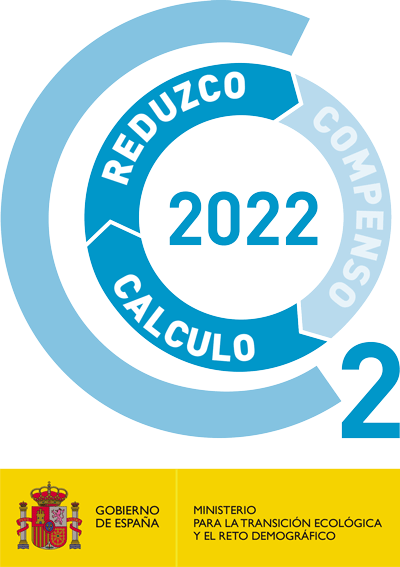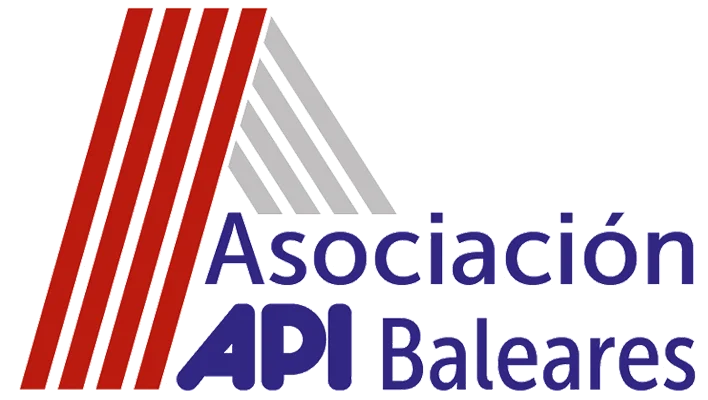Buy a property in Ibiza and secure your dream home is an incredibly exciting moment. However, all active buyers and future buyers need to be fully informed and equipped with the right knowledge of phases and added costs entailed within the property buying process in Spain, ideally before finding the perfect home.
Our detailed guide on How to Buy a Property in Ibiza has been written in a list format with a few links and helpful tips for your personal buyers’ journey. This easy-to-use guide can be kept for your reference each step of the way, and any extra personal advice can be sourced from one of our friendly team.
Taxes and Costs when buying a property in Ibiza
- Property Conveyance Tax (ITP)
- Value Added Tax (VAT/ IVA)
- Attorney Fees
- Mortgage fees
- Notary Fees & Property Registry Fees
- Banking Expenses
Buying a home in Ibiza, Spain, has multiple tax repercussions. Each purchase is subject to payment of Property Conveyance Tax or Value Added Tax, depending on the type of property in question.
Property Conveyance Tax (ITP)
When the property is used as a dwelling, the purchaser has to pay the Property Conveyance Tax (Impuesto de Transmisiones Patrimoniales or ITP, in Spanish). This tax is calculated based on the declared sale price reflected in the title deed or the private purchase contract, unless the value of the property, according to the Tax Department is deemed higher, in which case the price will be recalculated by the tax authorities accordingly.
This tax must be paid to the Tax Office of the municipality where the property is located, regardless of where the public sale/purchase or title deed is formalised.
The payment deadline of the Property Conveyance Tax is one calendar month from the title deed execution date.
In the Balearic Islands, the rate is between 8% and 13% of the taxable base, depending on the value of the conveyed property. For example:
- Up to € 400,000 (8%)
- € 400,000.01 – € 600,000 (9%)
- € 600,000.01 – € 1,000,000 (10%)
- € 1,000,000.01 – € 2,000,000 (12%)
- Over € 2,000,000 (13%)
The ITP tax is accumulative, meaning that the first 400.000€ are charged at 8%, and the rest that overpass that amount will be charged at the pertinent percentage.
Payable parking spaces:
- Up to € 30,000 (8%)
- Over € 30,000 (9%)
The Value Added Tax (VAT / IVA)
If the dwelling is newly built and this is the first occupancy conveyed to the purchaser by the developer or builder – the Property Conveyance Tax is not applicable, but the following two taxes must be paid instead:
1. Value Added Tax (VAT/ IVA)
The VAT is paid to the seller by the purchaser (together with the purchase price) and the seller must pay the VAT directly to the Tax Agency.
- 10% for housing.
- 21% for land, commercial premises, storage rooms, and garages.
2. Stamp Duty (Impuesto de Actos Jurídicos Documentados or AJD, in Spanish)
In general, whenever the purchase of a property is subject to VAT, the purchaser must additionally pay Stamp Duty Tax (AJD, in Spanish) at 1.5% of the purchase price. It is payable by the purchaser which must be presented within one calendar month (date to date) from the signature date of the title deed via the self-assessment procedure.
Other Expenses Arising From The Purchase of a Property in Ibiza
- Attorney Fees. Approximately 1% of the purchase price, to be paid by whoever solicits the legal advice.
- Mortgage Costs. Official property valuation document (price depends on value and size of the property; can range from 300€ or less to 3000 € or more). All other costs concerning the mortgage itself are now carried by the lending bank, and not by the customer. For more information on this subject, read our article "Everything you need to know about getting a mortgage in Ibiza" or scroll down to the bottom of this page to find a mortgage calculator.
- Notary Fees & Property Registry Fees. These fees will vary depending on the value of the property and other factors but will usually not exceed 0.5% of the purchase price; plus, as the purchase price increases the percentage decreases and can be as low as 0.1% or even lower. These fees are both to be paid by the purchaser.
- Banking Expenses. Depending on the bank and the form of payment.
- Agency Fees. Paid by the seller, unless otherwise agreed.
Summary of the costs related to buy a property in Ibiza
Total expenses for the purchaser can range between 8% and 12% of the purchase price and include the following:
- Taxes: ITP 8-11% or 10% VAT + 1.5% Stamp Duty
- Mortgage costs: 0% (since the new Ley Hipotecaria)
- Attorney/Consultancy fees: 1%
- Notary & Property Registry fees: 0.1% – 0.5% (or less)
- Banking expenses: Various
Summary Of The Responsibilities Of The Buyer
The following is a summary of the information required for the preparation of purchase before the signature of the title deed. Remember, there are professional offices (Gestoria) that can guide the purchaser through all these stages of the necessary documentation.
Documents required for signing before the notary:
- Original personal ID card or passport
- Original NIE / TIE Number (foreign resident/work permit)
- Bank cheque or proof of bank transfers. According to the payment conditions. On this point, foreigners who are making their first purchase in Spain are often required to open an account at a local bank.
- Receipts for any payments already made
- Military Permit (non-European Buyers)
- Golden Visa
N.B. The NIE /TIE is the fiscal ID for foreign residents who engage in economic activity in Spain. It must be presented to the notary and is necessary to pay taxes. To obtain an NIE / TIE you must submit an application accompanied by specific documentation to the appropriate National Police Force station. The processing period is usually two or three weeks. Contact your Gestoria or check out this page for more guidance on the NIE process and this page for information for UK nationals on getting a TIE.
N.B. Military Permit: For those non-European buyers who purchase rural properties, they must request a military permit from the Spanish Ministry of Defence prior to the sale. This is due to a law from 1975, whose objective was the defence of strategic points of the national geography (the islands being considered strategic territory in their entirety). The best is to apply for this permit and obtain it before the sale, although in extreme cases the permit is requested and proof of having applied for it is attached to the sale, after which the buyer should be aware that he has one year to obtain the permit or the sale could be declared null and void. It is advisable to consult a professional (lawyer and/or agency) for advice on each individual case.
N.B. The Golden Visa: The maximum period that a foreigner from outside the European Union can stay in Spain as a tourist is ninety (90) days. In order to avoid this limitation and, at the same time, not suffer consequences such as deportation, being considered a tax resident in Spain, etc., there are a series of visas that allow this period to be extended. One of them is known as the "Golden Visa", associated with the purchase and sale of a property for a minimum of five hundred thousand euros (€500,000.00). Each case is different, so it is advisable to consult a professional (lawyer and/or agency) to obtain personalised advice that adapts to the needs and circumstances of each client.
Money Laundering Act
Due to the provisions of Act 10/2010 on the prevention of money laundering and terrorist financing, we recommend that buyers prepare the documentation and means of payment well in advance.
Both the banks and notaries may require the submission of extensive documentation to properly account for the origin of the funds.
Due Diligence (Legal Checks)
Before signing the deed of sale in the presence of the notary (and even before the signature of a private contract), the purchaser should check all aspects of the legal standing of the dwelling.
We always advise our clients to use the services of an independent legal counsel to make these checks, especially if the purchase involves complex legal aspects.
These checks include:
- Checking the Title Deed. The purchaser should require the provision of the current title deed of the property from the seller.
- Consult the Real Property Registry. Buyers must ensure the property is registered in the name of the seller and is free of encumbrances or liabilities, and the property has no liens or outstanding mortgages.
- Consult the Land Registry. It is advisable buyers check the data in the Spanish Land Registry (known as the Catastro) e.g. for ownership, area, identification of the property, location, etc. by obtaining the appropriate descriptive and graphic Land Registry Certification.
- Planning Charges. If the property building was recently erected on developed land, this land, and consequently the dwelling, may be subject to urban planning charges. This aspect can also be checked by consulting the Real Property Registry of the relevant town or city council.
- Building Permission. The purchaser should check that the property has the required municipal building permission certification, and the building is legal (issued by the competent town or city council).
- Certificate of Occupancy and First Occupation License. The certificate of occupancy and the first occupation license (Cédula de Habitabilidad) are administrative documents showing that the dwelling meets the requirements of the applicable legislation for all buildings designed for human occupation and has met the conditions outlined in the building permit.
- Energy Performance Certificate. Any housing intended for sale, whether newly built or for resale, must have this certificate that accredits the energy efficiency rating of the building.
- Check Payment of the Property Tax. The buyer should check with the municipality council that there is no outstanding payment of property tax pending from previous years.
- Check that there are no Current Leases or Rental Agreements.
- Proprietors Association Contributions. The purchaser should check if the seller is paid up with the proprietors association if the dwelling is part of a condominium governed by the horizontal property regulations.
- Statutes of the Proprietors Association Statutes. If the dwelling is part of a condominium governed by horizontal property regulations, the purchaser should examine the statutes of the proprietors association in case some rules could restrict the uses to which the property can be used. In all events, the terms and conditions for contribution to the common expenses and maintenance of the building should be checked.
Phases of the Purchase Process
There are three notable phases when buying a property in Ibiza. Negotiation and Agreement, The Private Contract and Deposit Payment, and finally, The Sale Purchase Deed.
Negotiation and Agreement
Once a buyer has shown interest in acquiring a property, the negotiation process with the seller can begin. As your real estate agent, we would endeavour at this stage to help both parties fully reach a suitable agreement on the sale price. Once an agreement is reached, both parties can confirm the terms in writing, and the task of drawing up the official finalised contract can commence.
The Private Contract and Deposit Payment
This next stage involves the initial private document and deposit payment. This stage is not necessarily mandatory and occasionally both parties may prefer to sign the ‘Sale Purchase Deed’ directly as the first drawing of a contract. However, in most cases, it is advisable to sign a (prior) private agreement that can be drawn up with the help of the property agency’s legal service, or by the individual legal representatives of the clients. The aim is to make the agreement legally binding, with peace of mind and security for both parties, until the public deed can be signed before a notary.
Here there are three main types of Private Contract and Deposit Payment options:
1) Private Purchase Contract
The ‘Private Purchase Contract’ is where the seller agrees to deliver the property and the buyer agrees to pay a certain price for it. The buyer may pay the seller an agreed amount of money upon the signature of this private contract as a deposit. This payment is otherwise often referred to as a down payment, good faith deposit, or earnest money.
Once the agreement and contract have been signed, both parties are under obligation to respect the contract in the agreed terms and conditions. Infringement of this contract by either party entitles the other to choose between demanding the fulfilment of the contract on its own terms, or unilateral termination of the same, with the right to compensation for loss and damage.
2) Earnest Money Contract
The second private contract and deposit payment may be known as an ‘Earnest Money Contract’ which is a sales contract that includes a ‘pledge agreement’, where a partial amount (generally 10%), is delivered, referring to a deposit.
The definition of this amount as a security deposit (arras penitenciales, in Spanish) enables either party to freely withdraw from the contract. However, if the buyer withdraws, the amount paid as a security deposit may be retained by the seller. On the other hand, if the seller withdraws, the purchaser will be entitled to receive double the security deposit paid (the full deposit returned, plus the same again as a penalty).
3) Purchase Option Contract
Lastly, the ‘Purchase Option Contract’ is a private contract where the seller grants the purchaser the right to decide whether or not to enter into the final ‘Sales Purchase Deed’ within a certain time and under certain conditions.
If the purchaser decides not to exercise the option, the amount paid as the option premium deposit will be forfeited. If the grantor-seller refuses to sell on the agreed terms, the grantee-purchaser may choose between demanding fulfillment of the contract on its own terms or requesting termination of the same with the right to compensation for loss and damage.
In all these cases a private contract can take place remotely, by digital means, or by postal mail. All the negotiated terms, the price, the deadline for signature before a notary, a description of the dwelling including furniture and appliances, the responsibilities, and the expenses deriving from the transaction (including the agency’s fee) are included within this private document.
The Sale-Purchase Deed
The final signature of the deed of sale takes place before a notary of Ibiza in the presence of all parties or their legal representatives. Payment of the full agreed price, from which the down payment is deducted, takes place at this time.
Purchasers have the right to choose their notary since they bear the costs deriving from the formalisation of the title deed.
The rights and duties of ownership of the property covered by the agreement are transferred to the purchaser on the signature of the deed.
Procedures After The Signing Of The Deed
Once the purchaser acquires ownership of the property upon execution of the public deed before a notary, there are certain public authority requirements to consider, such as paying taxes, filing the title deed in public records, notification of the change of ownership of the property, etc.
Real Property Registry
Immediately after the signature of the public title deed, the notary will also send an attested copy by electronic means for registration in the appropriate ‘Real Property Registry’, on behalf of the purchaser. Once the digital copy of the instrument is received, the ‘Real Property Registry’ will open the submission entry, which will be valid for 60 days. Opening of the submission entry in the registry on the same day as the signature of the title deed entails the obligation of the purchaser(s) to register the dwelling in their own name, and with the same status concerning existing encumbrances that existed at the time of signature.
Payment of Taxes
The signature of the title deed gives rise to the obligation of the purchaser to pay the associated taxes: the Property Conveyance Tax (in the case of a second-hand dwelling) or the VAT and Stamp Duty (for new buildings or land).
Change of Ownership in the Land Registry
The purchaser must notify the Land Registry of the change of ownership of the property within two months from the signature of the title deed.
Notification of the Council
The purchaser is obliged to notify the competent municipal council of conveyance of the property by submitting a non-attested copy of the title deed to enable the council to levy the capital gains tax (Impuesto Sobre el Incremento de Valor de Los Terrenos de Naturaleza Urbana in Spanish). In most cases, this notification is handled directly by the notary office by electronic means.
—
We hope this guide on How to Buy a Property in Ibiza has been useful; for more case specific questions & answers please do not hesitate to contact your personally assigned Prestige Sales Agent!
To find out more about the seller’s expenses and responsibilities – read our article:




